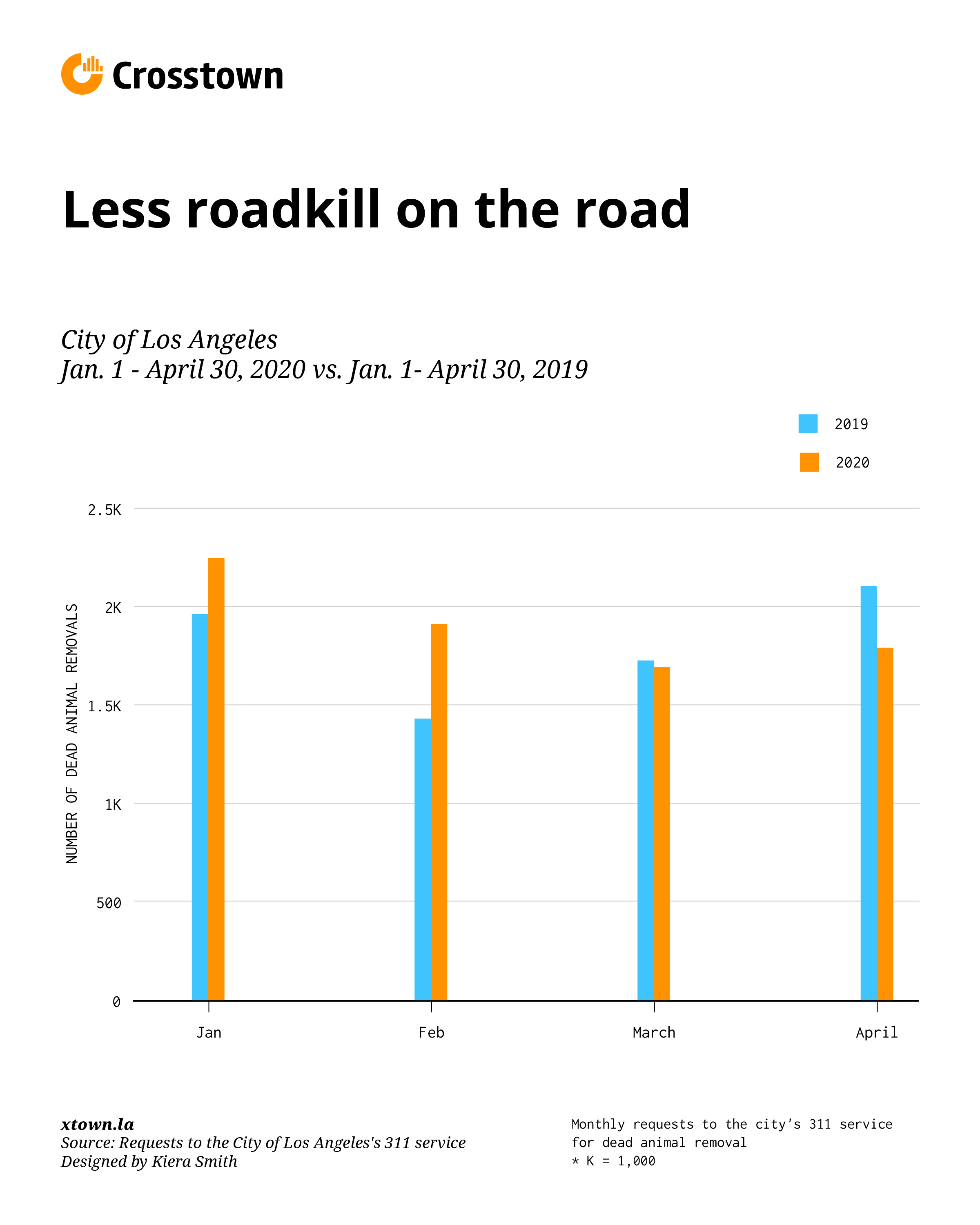Does less traffic mean less roadkill?

Add this to the list of things COVID-19 has flipped upside down: roadkill.
Requests to the city’s 311 call center for “dead animal removal” decreased by 15% this April from the same month a year ago. It was the lowest total for April, at 1791 requests, recorded in the past five years.
With fewer cars on the road, the streets may be safer for animals as well.
Since the COVID-19 stay-at-home order was issued on March 19, there is little about life in Los Angeles that has not been impacted. That month, the number of times the police cited a mask-wearing suspect for a crime doubled; in April, it doubled again. The number of vehicle collisions fell by 41% in March compared to 2019, and Los Angeles recorded its longest stretch of clean air days (21 in March) in 40 years.
A drop in the number of roadkill incidents during COVID-19 is not all the local animals are celebrating. Wild animals are safely roaming free across the nation. In San Francisco, there has been a surge in the number of coyotes spotted on the city’s empty streets. In Los Angeles, a similar phenomenon has occurred, with everything from a family of ducklings crossing the road to a 400 pound bear nosing around backyards in Monrovia.
Few things bring L.A. traffic to a grinding halt…voluntarily.
Good luck duck family! Next time, maybe use the crosswalk? pic.twitter.com/NMCFPcK9Zp
— LAPD HQ (@LAPDHQ) April 30, 2020

Fewer roadkill calls may mean just that, however.
“One complication is that with the stay-at-home orders and guidance, fewer people are out driving and able to spot and record roadkill,” said Fraser Shilling, the co-director of the Road Ecology Center at the University of California, Davis. He cautioned that the drop in reports might not tell the full story. “Another complication is that because of the volume of traffic in Los Angeles and most of California, even cutting that traffic in half still leaves a lot of traffic and animals may still be hit at the same rate.”
And no, you still can’t eat roadkill. The Wildlife Traffic Safety Act of 2019 authorizes the California Fish and Game Commission to create a program by 2022 that would give permits allowing certain people to salvage roadkill, but we’re not there yet.
Even if you were thinking about it, though, there might be less on the menu.
How we did it: We examined publicly available data from the City of Los Angeles’s 311 call center. For neighborhood boundaries, we rely on the borders defined by the Los Angeles Times. Learn more about our data here.
Want to know how your neighborhood fares? Or simply just interested in our data? Email us at askus@xtown.la.






